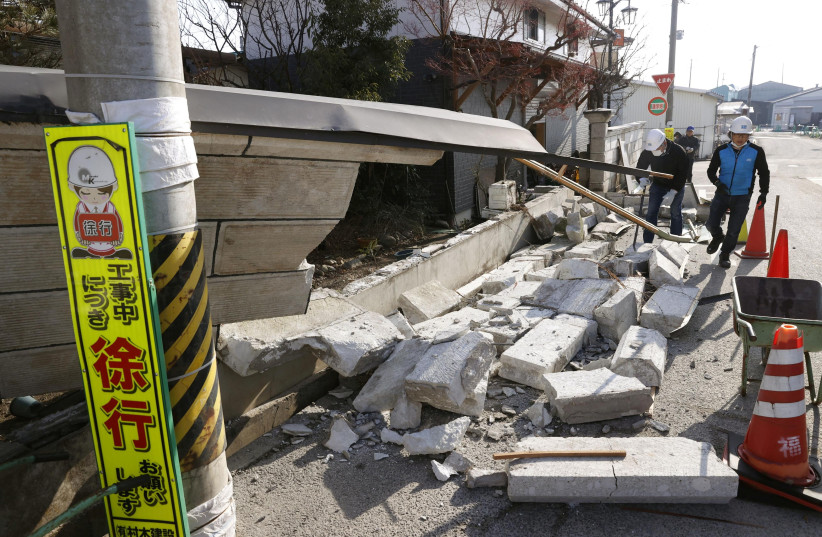Tokyo Shaking, which opens in theaters around Israel on November 10, takes an interesting premise and does not quite deliver the compelling story it promises. It is set during the earthquake in Japan in 2011 that set off the tsunami and subsequent nuclear accident at the power plant in Fukushima and is told mainly through the eyes of a French banker living in Tokyo with her family.
While this setup might seem to promise a harrowing drama about how to navigate a disaster in an unfamiliar setting, it steps back whenever it seems about to become compelling. The acting, cinematography and production are highly polished, but the script seems designed to mute any real conflict, which is strange, given that the situation is so inherently dramatic.
The movie, which was directed by Olivier Peyon, focuses on Alexandra Pacquart (Karen Viard), who, ironically, has just arrived in Tokyo to run the risk management division for a French-run international bank’s Japan office. She is even-tempered and personable, and her two kids Camille (Nola Blossom) and Victor (Simon Ayache) have an even cuter dog. Her husband Bertrand (Charlie Dupont), who we learn has adapted his lower-profile career to accommodate her international postings, has stayed behind in Hong Kong, where she was working last.
An accomplished professional, she begins to learn the Japanese way of doing business from her eager assistant, Kimiko (Yumi Narita), who admires her – “I like the way you put your children second to your career,” Kimiko tells her earnestly, only to realize belatedly she has said the wrong thing. The movie is at its best when it examines the differences between the European and Japanese mentality and at times, I found myself wishing the entire movie was about this.

SHE MENTORS a bright young Congolese intern, Amani (Stephane Bak) and is delighted to let him know they are offering him a job, only to squirm when soon afterward, she is told by her boss that they must lay off people and cannot hire anyone. Amani is sitting opposite her in her chic, glass-and-chrome office, sullenly digesting the news that he is not getting his dream job, when the high-rise where the office is located begins to shake. Anyone who has weathered a minor earthquake in a small building can only imagine the terror of being 20 floors up during the Big One and the movie depicts it convincingly, including the fact that the angry Stephane continues to glare at Alexandra throughout and refuses to shelter with her under her desk.
They get through the earthquake itself but as is so often the case in life, the aftermath is more confusing and ultimately more challenging than the original disaster. Alexandra’s husband wants her and her children to get on the next plane to Hong Kong, but she thinks he is overreacting until the tsunami hits and the nuclear meltdown begins at the Fukushima plant. It ultimately hits a seven on the meltdown scale, the same as in Chernobyl. Then there is a scramble to figure out what to do and Alexandra is forced to examine her priorities: do her children actually come first or will she put them on a plane and stay to help her staff?\
Movie features real tsunami news footage
The story is mixed with news footage on the disaster and most memorably, the tsunami, which is horrifying. While we root for Alexandra to help keep everyone around her safe, it is hard not to think of the fact that the fallout from Fukushima did not hit Tokyo, nor did tsunamis. Of course, the characters don’t have our 20-20 hindsight but the movie fails to build real suspense, as we look through their eyes, which admittedly is a difficult feat.
The highlight of the movie is when Alexandra accompanies the staff to a traditional bar/restaurant owned by the family of one of the employees and Kimiko speaks to her about how they are all terrified but feel it would be bad form to show their fear.
As climate change causes more disasters around the world, more of us will likely face the dilemmas that confront Alexandra in the film but this is not the movie that will give us much insight into them.
